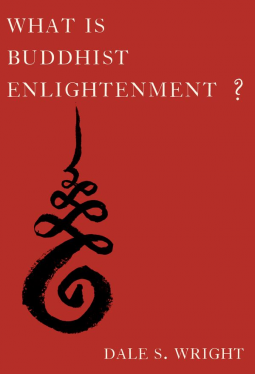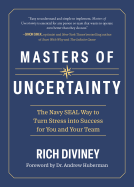
What Is Buddhist Enlightenment?
by Dale S. Wright
This title was previously available on NetGalley and is now archived.
Buy on Amazon
Buy on Waterstones
*This page contains affiliate links, so we may earn a small commission when you make a purchase through links on our site at no additional cost to you.
Send NetGalley books directly to your Kindle or Kindle app
1
To read on a Kindle or Kindle app, please add kindle@netgalley.com as an approved email address to receive files in your Amazon account. Click here for step-by-step instructions.
2
Also find your Kindle email address within your Amazon account, and enter it here.
Pub Date 3 Oct 2016 | Archive Date 3 Oct 2016
Description
What kind of person should I strive to be? What ideals should I pursue in my life? These questions, or versions of them, are essential building blocks of the human condition, and often recur throughout our lives. Dale S. Wright argues that the question at the heart of them all is one most commonly associated with Buddhism: What is enlightenment? Any serious practitioner of human life, religious or not, confronts the challenge of how to reach a different, improved--or enlightened--state of being, and fundamental to that quest is grappling with what enlightenment actually means. Why then, Wright asks, is this question not only avoided, but discouraged among Buddhists?
The simplest and perhaps most important reason is that pondering a distant goal is a waste of energy that would be much better applied to practice: Quiet the flow of obsessive thinking, put yourself in a mindful state of presence, and let enlightenment take care of itself. However, the point of Buddhist practice is that it might lead to some form of awakening; in some groundbreaking transformation; in enlightenment. Wright contends that understanding the nature of the enlightenment that one seeks is the most important task of all, and that it can and should be in line with practice. Once practice is underway, he says, there should be an ongoing meditation on the ideal that is being strived for.
What is Buddhist Enlightenment? offers a wide-ranging exploration of issues that have a bearing on the contemporary meaning of enlightenment. While he takes an examination of what enlightenment has been in past Buddhist traditions as his point of departure, Wright's historical considerations yield to the question that our lives press upon us-what kinds of lives should we aspire to live here, now, and into the future?
The simplest and perhaps most important reason is that pondering a distant goal is a waste of energy that would be much better applied to practice: Quiet the flow of obsessive thinking, put yourself in a mindful state of presence, and let enlightenment take care of itself. However, the point of Buddhist practice is that it might lead to some form of awakening; in some groundbreaking transformation; in enlightenment. Wright contends that understanding the nature of the enlightenment that one seeks is the most important task of all, and that it can and should be in line with practice. Once practice is underway, he says, there should be an ongoing meditation on the ideal that is being strived for.
What is Buddhist Enlightenment? offers a wide-ranging exploration of issues that have a bearing on the contemporary meaning of enlightenment. While he takes an examination of what enlightenment has been in past Buddhist traditions as his point of departure, Wright's historical considerations yield to the question that our lives press upon us-what kinds of lives should we aspire to live here, now, and into the future?
Available Editions
| EDITION | Hardcover |
| ISBN | 9780190622596 |
| PRICE | US$29.95 (USD) |
Average rating from 7 members
Readers who liked this book also liked:
The Transformative Power of Small Groups
Michael White and Tom Corcoran
Christian, Religion & Spirituality
Michael White and Tom Corcoran
Christian, Religion & Spirituality







